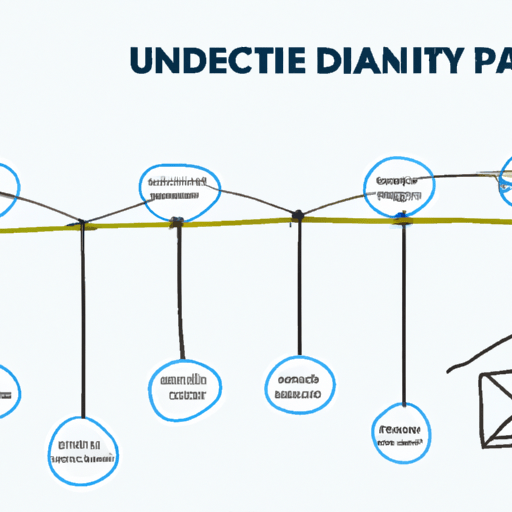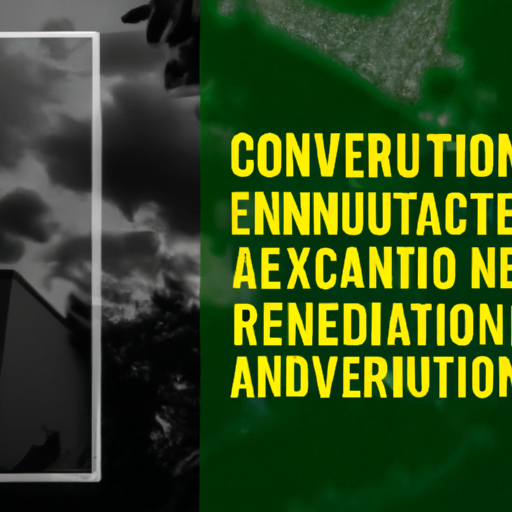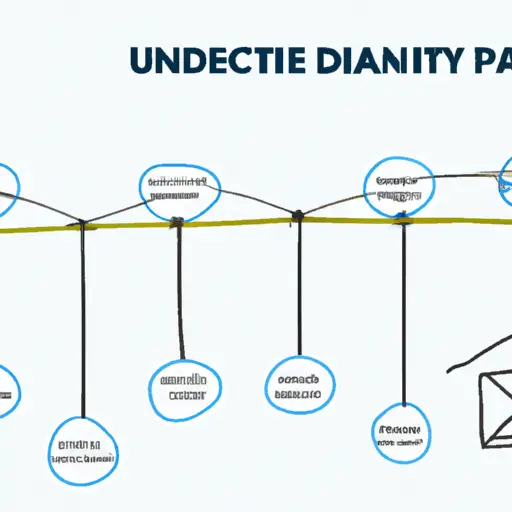So, you’ve been hearing a lot about off-grid living lately, right? It seems like everywhere you turn, someone is talking about alternative energy sources, sustainable living, and disconnecting from the grid. But what exactly does it mean to live off-grid? And more importantly, what are the best options for off-grid living? Well, my friend, you’re in luck because we’ve got all the answers for you right here.
Living off-grid essentially means relying on your own resources for energy, water, and food, instead of depending on public utilities. It’s a lifestyle choice that offers a sense of freedom and self-sufficiency. Now, there are several different options you can explore when it comes to off-grid living. One popular choice is solar power. Harnessing the sun’s energy through solar panels allows you to generate electricity for your home. It’s a renewable and sustainable source of power, and with advancements in technology, it’s becoming more affordable and efficient.
Another great option for off-grid living is wind power. By installing wind turbines on your property, you can generate electricity from the wind’s natural force. It’s a clean, renewable energy source that can be particularly effective in windy areas. And if you’re looking to go a step further, you can even consider a hybrid system that combines both solar and wind power for maximum efficiency.
But it’s not just about energy – off-grid living also involves finding sustainable solutions for water and food. Rainwater harvesting is a fantastic option for collecting and storing water. By installing a system that captures rainwater, you can have a reliable source of water for drinking, cooking, and even gardening. As for food, there are various options to explore, such as growing your own fruits and vegetables in a garden or setting up a greenhouse. Some off-gridders even raise their own livestock for meat, eggs, and dairy products.
So, my friend, as you can see, living off-grid opens up a world of possibilities and alternative solutions for energy, water, and food. In our upcoming article, we’ll dive deeper into each of these options and provide you with all the information you need to make an informed decision. Get ready to explore the best choices for off-grid living and embark on a journey towards a more sustainable and self-sufficient lifestyle. Stay tuned! Living off-grid is becoming an increasingly popular lifestyle choice for many people who want to live in a more sustainable and self-sufficient way. By disconnecting from the traditional power grid and relying on alternative sources of energy and water, off-gridders can enjoy a number of benefits, including environmental sustainability, energy independence, and cost savings. However, before making the jump to off-grid living, it is important to consider the right location, types of power generation, water sources, waste management, food production, technology, challenges, and tips for beginners in order to make the most informed decision. Let’s explore the best options for off-grid living.
Environmental Sustainability
One of the major benefits of off-grid living is its positive impact on the environment. By choosing to disconnect from the power grid and relying on renewable energy sources, off-gridders significantly reduce their carbon footprint. The two most common types of off-grid power generation are solar energy and wind energy.
Solar Energy
Solar energy is harnessed by utilizing solar panels to capture the energy from the sun and convert it into electricity. This clean and renewable energy source is highly accessible, especially in sunny regions. By investing in a solar energy system, you can power your home with sustainable energy and reduce your reliance on non-renewable resources.
Wind Energy
Another popular option for off-grid power generation is wind energy. By using wind turbines, you can harness the power of the wind to generate electricity. Wind energy is particularly effective in areas with consistent and strong winds. It is important to conduct a thorough wind assessment before investing in a wind turbine to ensure its efficiency and effectiveness.
Hydro Power
In certain locations, hydro power can also be a viable option for off-grid living. By utilizing the natural flow of water in rivers and streams, hydro power systems generate electricity. However, it is important to consider the environmental impact of building a dam or altering waterways before opting for this type of power generation.
Energy Independence
Another major benefit of off-grid living is the ability to be self-sufficient and independent when it comes to energy. By relying on renewable energy sources, you no longer have to worry about power outages or rising utility bills. Instead, you can generate your own energy and have full control over your electricity usage.
Cost Savings
Off-grid living can also lead to significant cost savings in the long run. While the initial investment in alternative energy systems and infrastructure may seem expensive, the savings on utility bills and the ability to produce your own food can outweigh the costs. Additionally, you may be eligible for government incentives and rebates for adopting renewable energy sources.

Choosing the Right Location for Off-Grid Living
When it comes to off-grid living, choosing the right location is crucial. There are several factors to consider, including climate considerations, access to resources, and land regulations and zoning.
Climate Considerations
The climate of an area plays a key role in off-grid living. For solar energy systems, regions with high sun exposure are ideal. On the other hand, wind energy systems require consistent and strong winds. It is important to research and assess the climate patterns of potential locations to determine whether they are suitable for your preferred type of off-grid power generation.
Access to Resources
Living off-grid requires a certain level of self-sufficiency, which means having access to essential resources. These include water sources, food production areas, and proximity to necessary supplies. Before settling on a location, it is important to consider the availability of these resources and ensure that they are easily accessible.
Land Regulations and Zoning
Another important consideration is the land regulations and zoning of the area you wish to live in. Some regions have specific regulations and restrictions when it comes to off-grid living. It is crucial to understand these regulations and ensure that your chosen location allows for off-grid living and the construction of alternative energy systems.
Types of Off-Grid Power Generation
As mentioned earlier, solar energy and wind energy are the most common forms of off-grid power generation. However, it is important to explore all available options before making a decision.
Solar Energy
Solar energy systems are the most popular choice for off-grid living. With solar panels, you can capture the energy from the sun and convert it into electricity. Solar energy is a renewable source of power, making it both environmentally friendly and cost-effective. Additionally, advancements in technology have made solar panels more efficient and affordable than ever before.
Wind Energy
Wind energy systems harness the power of the wind to generate electricity. By using wind turbines, you can convert the kinetic energy of the wind into electrical energy. Wind energy is particularly effective in areas with consistent and strong winds. However, it is important to conduct a thorough wind assessment before investing in a wind turbine to ensure its efficiency and effectiveness.
Hydro Power
In some locations, hydro power can be a viable option for off-grid living. Hydro power systems utilize the natural flow of water in rivers and streams to generate electricity. However, it is important to consider the environmental impact of building a dam or altering waterways before opting for this type of power generation.
Water Sources for Off-Grid Living
In addition to power generation, off-grid living requires careful consideration of water sources. Depending on the location, there are several options for accessing clean water.
Rainwater Harvesting
Rainwater harvesting is the process of collecting and storing rainwater for later use. This can be done through the use of rain barrels, tanks, or cisterns. Rainwater can be used for various purposes, including drinking, cooking, and irrigation. However, it is important to filter and purify rainwater before using it for consumption.
Well Water
Well water is another common source of water for off-grid living. By drilling a well, you can access groundwater and ensure a constant supply of clean water. It is important to test the quality of well water regularly and maintain the well to avoid any contamination.
Surface Water
If you are located near a lake, river, or stream, surface water can be another source of water for off-grid living. However, it is crucial to filter and purify surface water before using it for drinking or cooking.

Managing Waste in Off-Grid Living
Off-grid living also requires careful management of waste in order to minimize its impact on the environment. There are several options for waste management in off-grid living, including composting toilets, greywater systems, and recycling and reusing.
Composting Toilets
Composting toilets are a sustainable alternative to traditional flush toilets. They use little to no water and convert human waste into compost. This compost can then be used as fertilizer for plants. Composting toilets are an eco-friendly option for off-grid living and help to maximize the use of natural resources.
Greywater Systems
Greywater is the wastewater generated from household activities such as showering, washing dishes, and doing laundry. Greywater systems collect and treat this water for reuse in non-potable applications like irrigation. By reusing greywater, off-gridders can minimize their water usage and reduce the strain on their water sources.
Recycling and Reusing
In off-grid living, it is important to adopt a mindset of recycling and reusing items whenever possible. This can include composting food scraps, repurposing materials, and reducing waste through mindful consumption. By minimizing waste, off-gridders can contribute to a more sustainable and self-sufficient lifestyle.
Food Production in Off-Grid Living
One of the key aspects of off-grid living is the ability to produce your own food. There are several options for food production, including vegetable gardening, livestock rearing, and aquaponics.
Vegetable Gardening
Vegetable gardening allows off-gridders to grow their own fruits and vegetables. By cultivating a garden, you can have a constant supply of fresh and organic produce. It is important to choose crops that are well-suited to your climate and soil conditions and to practice sustainable gardening methods, such as companion planting and crop rotation.
Livestock Rearing
Keeping livestock is another option for off-grid food production. Raising chickens for eggs, goats for milk, or cows for meat can provide a sustainable source of food for off-gridders. However, it is important to consider the space and resources required for livestock rearing before making the decision to raise animals.
Aquaponics
Aquaponics is a system that combines aquaculture (fish farming) with hydroponics (growing plants in water). In this system, fish waste provides nutrients for the plants, while the plants filter and purify the water for the fish. Aquaponics is a sustainable and efficient method of food production that requires less water and space compared to traditional farming.
Off-Grid Living and Technology
While off-grid living is all about disconnecting from the traditional power grid, technology can still play a role in making the lifestyle easier and more efficient. There are several ways technology can be integrated into off-grid living, including the use of solar panels and batteries, smart homes, and internet connectivity.
Solar Panels and Batteries
Solar panels and batteries are essential components of off-grid power systems. Solar panels capture energy from the sun, which is stored in batteries for later use. This allows off-gridders to power their homes even during periods of low sunlight. Advances in technology have made solar panels and batteries more efficient and affordable, making them an ideal choice for off-grid living.
Smart Homes
Smart home technology can help off-gridders monitor and control their energy usage more efficiently. From smart thermostats and appliances to home automation systems, smart home technology allows for better management of energy consumption. This can lead to greater energy savings and a more sustainable off-grid lifestyle.
Internet Connectivity
While off-grid living often means living in remote areas, it is still possible to have internet connectivity. Satellite internet or wireless internet options can provide off-gridders with access to online resources, communication, and even remote work opportunities. Internet connectivity can enhance the off-grid living experience by providing access to valuable information and services.
Off-Grid Living Challenges
While off-grid living offers numerous benefits, it is not without its challenges. Three main challenges to consider are limited access to services, social isolation, and changing weather conditions.
Limited Access to Services
Living off-grid often means living in remote areas far from essential services such as healthcare facilities, grocery stores, and emergency services. It is important to plan and consider the distance to these services and have a plan in place for any emergencies.
Social Isolation
Living off-grid can lead to social isolation, especially if you are in a remote location. It is important to develop a strong support network and find ways to connect with others who have chosen the same lifestyle. This can be done through online communities, local meetups, or participating in off-grid events and workshops.
Changing Weather Conditions
Off-grid living requires adaptability, especially when it comes to changing weather conditions. From extreme heat to heavy snowfall, off-gridders must be prepared for all types of weather. This may include investing in backup power systems, having a sufficient supply of food and water, and ensuring that your infrastructure is built to withstand these conditions.
Off-Grid Living Tips for Beginners
If you are considering off-grid living, here are some tips to help you get started:
Developing Self-Sufficiency Skills
Before making the leap to off-grid living, it is important to develop self-sufficiency skills. This can include learning how to grow your own food, repair and maintain your infrastructure, and navigate off-grid challenges. By acquiring these skills, you will be better equipped to handle the demands of off-grid living.
Building a Support Network
Building a support network of like-minded individuals is crucial in off-grid living. Surround yourself with people who share your values and can offer guidance and support. This can be done through online forums, community organizations, or attending off-grid events and workshops.
Continuous Learning
Off-grid living is an ongoing learning process. Stay informed about the latest developments in off-grid technology, sustainable living practices, and self-sufficiency skills. Continuous learning will help you adapt to new challenges and make the most of your off-grid lifestyle.
Conclusion
Off-grid living offers numerous benefits to those seeking a more sustainable and self-sufficient lifestyle. By choosing the right location, types of power generation, water sources, waste management systems, and food production methods, you can create a fulfilling off-grid experience. While there are challenges to overcome, with proper planning, support, and continuous learning, off-grid living can be a rewarding and environmentally friendly way of life. So, whether you are looking to reduce your carbon footprint, achieve energy independence, or embrace a simpler way of living, off-grid living may be the best option for you.




